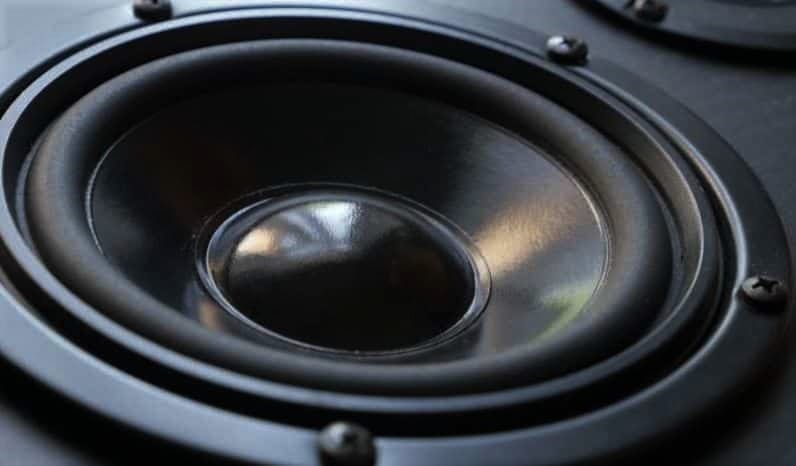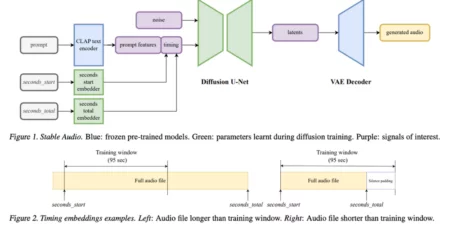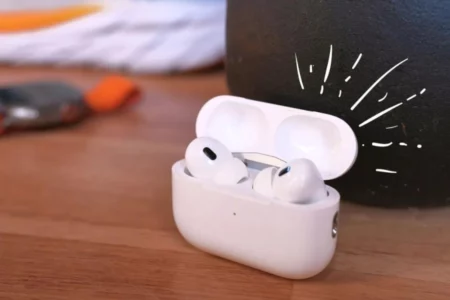It is irritating to have your music or movies interrupted by a noise that isn’t on the soundtrack. This usually manifests itself as a crackling sound coming from one of your speakers. If you’ve ever dealt with a similar problem, you understand how aggravating it can be.
So how to fix car speakers crackling? Where can I get my car speakers fixed? And why do my speakers crackle when I turn up the volume? You’ll find all the answers and more once you read this guide.
Why are My Car Speakers Crackling?
First, you need to know the reason. When a speaker cracks, it usually signifies that something is amiss with the speaker’s wiring connection. The main cause of car speaker crackling is a poor connection between the speaker and the amplifier.
Damaged voice coils that come into contact with the magnet can also cause the speakers to crackle. Also, when an overly powerful amplifier powers a speaker, the voice coils attempt to push the cone past its capacity, causing it to crackle.
There are 4 fundamental reasons why are my car speakers crackling on a poor speaker connection:
Latest Article: How to Clean Vinyl Records? Safely Clean at Home
Torn Speaker Wires:
This is especially common with older automotive audio systems. In the audio system, cables become damaged over time in the confined spaces of doors only accessed thousands of times a year.
So it’s worth replacing OEM speakers with high-quality OFC cables for the optimum audio experience.
Damaged Connectors:
Radio harnesses are normally in good condition unless they are crammed tightly in the dashboard. Speaker connectors are the most commonly broken because they get loose as speaker wires move.
Speakers located in the back decks, for example, are particularly vulnerable, and if you have this problem, consider replacing damaged connectors with robust FIXITOK spade connectors.
Voice Coil:
The damaged voice coil is another reason for the speaker to crackle if both wires and connectors have been tested and are in good condition.
The voice coil is housed within the magnet. A voice coil and a magnet have a small space between them. Therefore, when the voice coil is positioned off-center, it can touch the magnet and make a crackling noise.
This contact creates a shortcut to get a solution of why do my car speakers crackle at high volume. Although shortcuts only last a fraction of a second, they are enough to cause the speaker to crackle.
Few Readings Voice Call is out of Position:
The voice coil might be out of position for a variety of reasons:
- When the cone or suspension of the speaker has been repaired and reassembled, the voice coil has been placed out of position against the magnet.
- The manufacturer may have made a mistake with the speaker.
- When the voice coil was replaced, the new one was mistakenly installed.
Speakers can also crackle when they’re connected to a malfunctioning amplifier or broken pre-outs. Speakers usually don’t play when the amp is destroyed, but this isn’t always the case.
Amplifiers can produce signals at low volumes without issue. But when automobile speakers crackle at high volumes, it could indicate that the amplifier is damaged.
Test your Speaker with Music App Playlist: Pandora and Spotify
Settle Car Speaker Crackling at High Volume
When you listen to loud music and hear sound distortion, it could be due to the speakers’ capacity to handle too much bass. You can lessen the possibility of cracking sound by adjusting the bass and treble on the head unit accordingly. There can be a settling solution for car speakers crackling when loud at high level.
Avoid Bass Boosted Music:
Too much bass is never beneficial for the quality of the music, and you should avoid it unless you’re competing. Any volume level, regardless of how good the speakers are, is overstressed by too much bass. When music with a lot of bass is played for a long time, it damages the speakers permanently.
Wireless Subwoofer Interference:
Wireless interference could be the problem if your subwoofer is wireless. It happens when signals collide and hurt one another, disrupting or weakening the Wi-Fi signal. Remember that your home may have multiple devices sending their signals, not only WiFi signals.
Your router, microwave, and cell phone, for example, all emit signals that can interfere with the signal of your subwoofer. In reality, because practically everything nowadays is smart, your smart fridge, air conditioner, fan, and other devices could be interfering with the signal reaching the sub.
To rule out this possibility, hardwire the subwoofer to the receiver, which means connecting the sub to the receiver directly with an RCA cable or, better yet, a subwoofer cable.
If the problem disappears after hardwiring the device, interference is the cause. Wireless technology also has its limitations.
How to Fix Car Speakers Making Crackling Noise?
Driving while listening to high-quality music is the most pleasing way to relax while driving. However, we can’t eliminate the possibility of speakers crackling.
There are numerous explanations for this problem. However, a few simple procedures will greatly lessen the likelihood of car speakers crackling at low volume or high intensity.
Quick Troubleshooting Steps:
Before we get into more detail, here’s a fast troubleshooting method that may help you solve the problem in a matter of minutes.
- Turn the receiver off first.
- Make sure the subwoofer is connected to the receiver or amplifier properly.
- Turn off any electronic gadgets in the vicinity that could interfere with the sub.
- Subwoofer wires should be kept away from any electrical cords.
- If the problem persists and you don’t have any unique receiver settings. Reset the radio to factory default settings. Reset instructions can be found in the stereo receiver’s instruction manual.
Substitute a Different Sub:
When a different sub is linked, the problem is solved—indicating that the fault is with the original sub. However, if the problem continues, the issue is most likely with the receiver. If it works, it’s a quick and easy solution to keep your subwoofer from popping.
Disable The Auto-On Setting:
Is the subset “always-on” or “auto”? Many individuals have reported that merely changing the “power mode” from “Auto on” to “Always-on” fixed the subwoofer popping problem. If it works, it’s a quick and easy solution to keep your subwoofer from popping.
On the other hand, the auto-on feature is utilized to automatically switch on the subwoofer when it senses an input signal. This reduces energy use and, as a result, indoor heating.
However, the popping could be due to a problem with the auto on circuitry. Popping due to Auto on is usually an indicator of a receiver circuit failure in new car speakers crackling.
To explain, if you switch listening modes and the subwoofer stops popping. It means a specific pre-out jack is not muted or is not muted for a long enough amount of time. A broken diode or another circuit component in the receiver could be the source of the problem.
In reality, depending on the amp, the standby power in “always-on” may be roughly the same as in “auto on,” thus there may not be much of an advantage.

Power Settings and Overheating:
We had mentioned that the subwoofer power settings should be set to always on. Because a subwoofer can overheat if it is turned on all the time, this may only solve the problem momentarily.
Overheating can result in popping in numerous circumstances. Remember that the amps in these subs are extremely powerful and will heat up and burn out quickly. If the sub’s always-on feature is activated, turn it off manually while not in use.
Check the Speaker Cables:
Look for mechanical damage, corrosion, or general wear in the shielding. Speaker wires can become slack over time, so make sure all connections are secure. Subwoofer cable connections are essential since intense vibrations can cause connections to loosen.
Use High Pass filters for all Car Speakers:
Filters correctly placed will prevent too much bass from reaching the door speakers, which could create distortion. Most automobile speakers aren’t built to handle intense, deep bass, and putting low frequencies into them can lead them to become overworked and eventually damaged. Installing a subwoofer and isolating just frequencies over 80Hz to the door speakers is the simplest approach to get bass.
How To Fix Wireless Interference?
- The simplest solution is to connect the devices directly, but if you must use WiFi, try the following
- If the popping sound persists, move the sub around the room. However, this may not be the greatest solution because subwoofer location is critical in a home theatre. Some folks, for example, choose to place their subwoofer under their couch.
- Reposition your WiFi equipment until the popping stops. Again, many gadgets could be causing the issue, and you don’t know which one is, so that might not be the best option.
- Protect your subwoofer from outside interference. You can use several WiFi shields to protect the sub from other devices while keeping it linked to the WiFi receiver. There are actual shields available for purchase, but you should first try foil to see whether it works.
- If you have many other wireless devices, make sure the sub is on a channel that is as far away as possible from the others.
Static Coming from Car Speakers
If you want to get rid of car speakers static when turned up and get back to enjoying music, remember to follow the crucial procedures listed above:
- Determine the source of the crackling sounds.
- Follow the above mentioned procedures to get rid of the cracking sound.
- Purchase a ground loop isolator if necessary.
- Get back to listening to your high-definition music.






1 Comment
Thanks, I’ve been looking for this for a long time